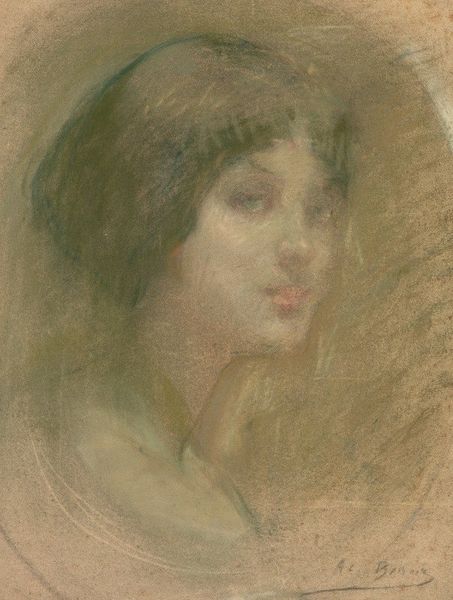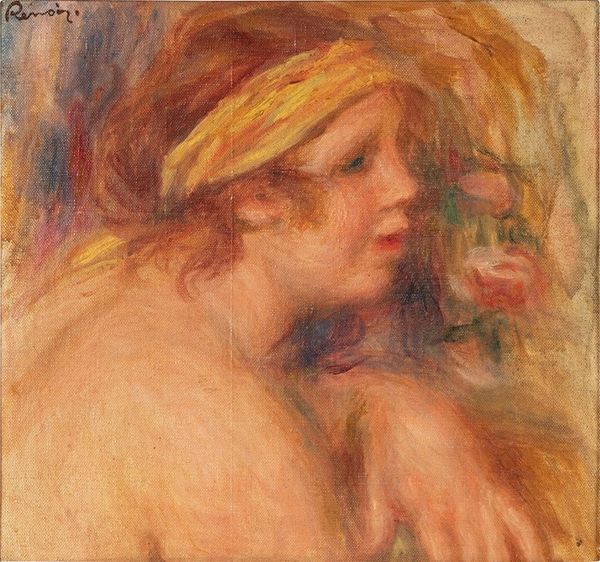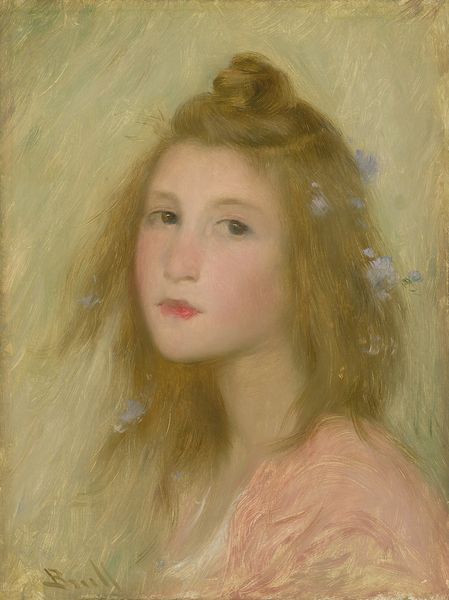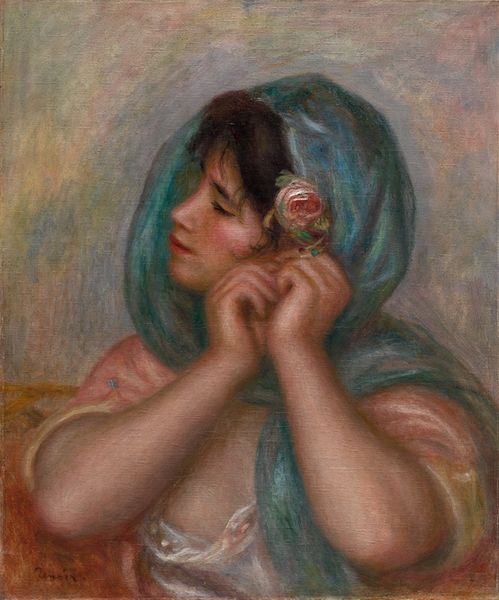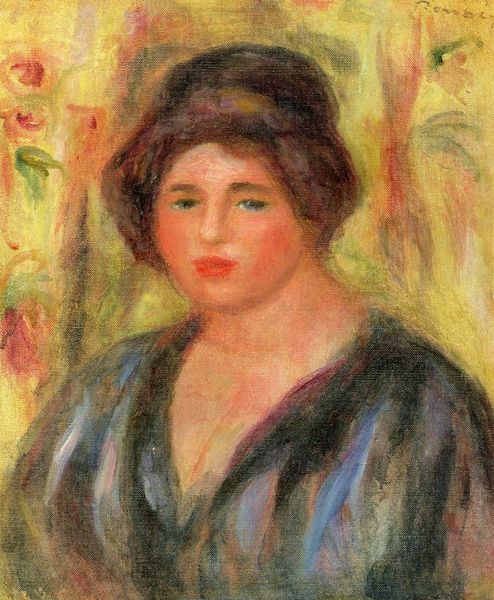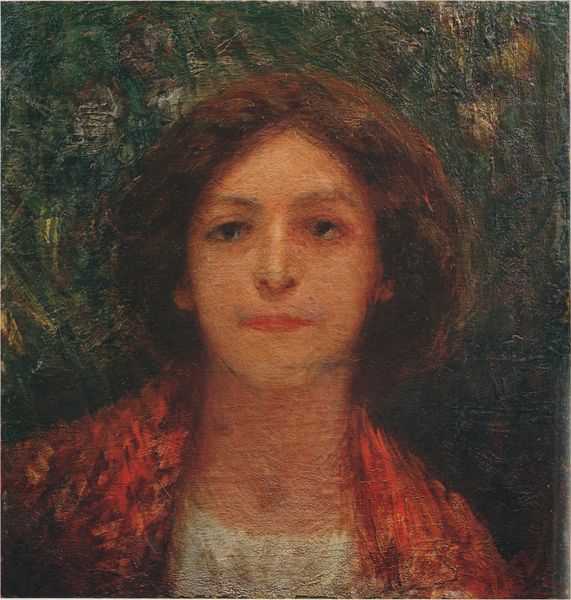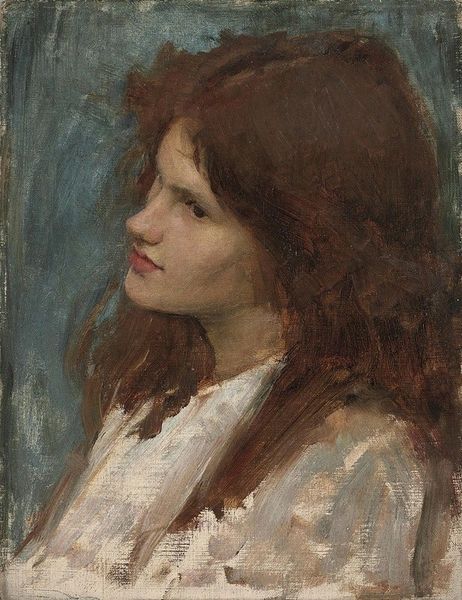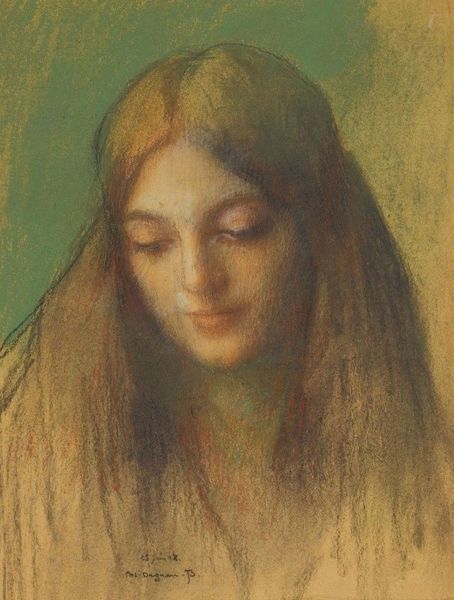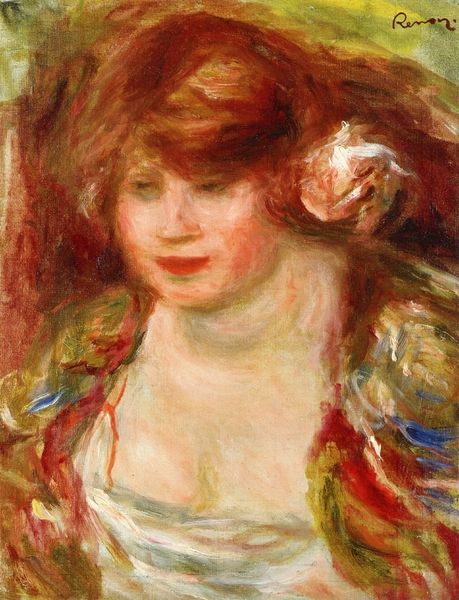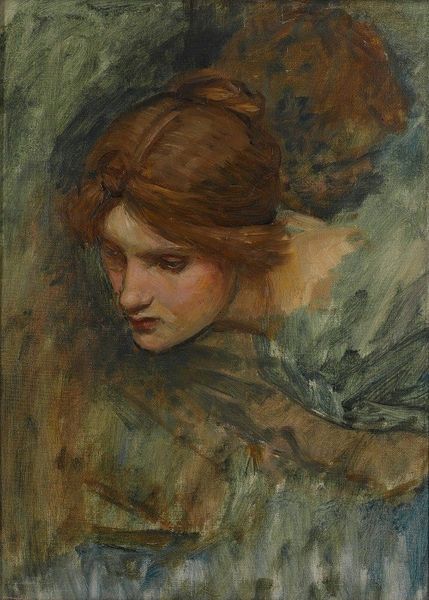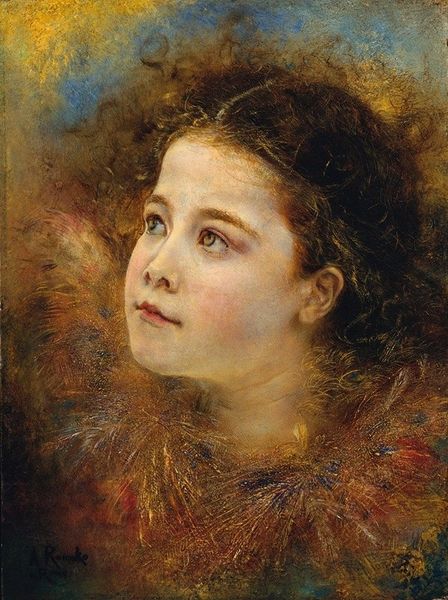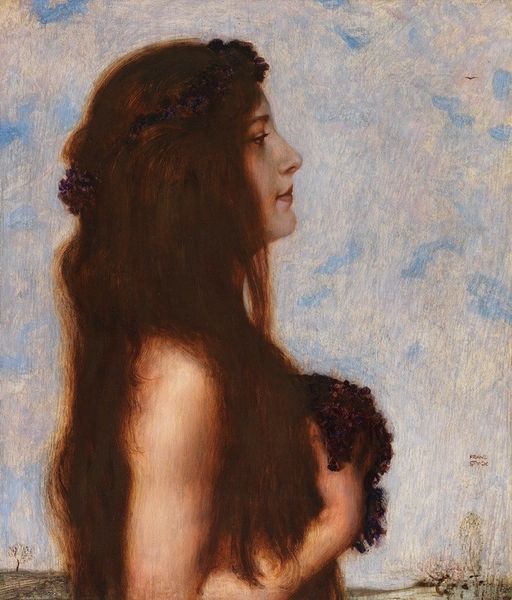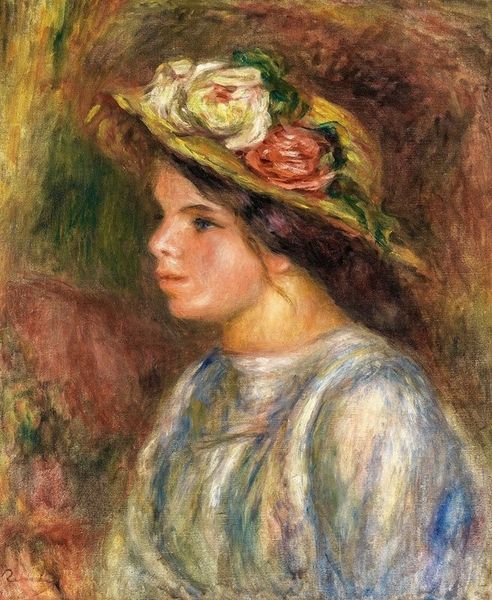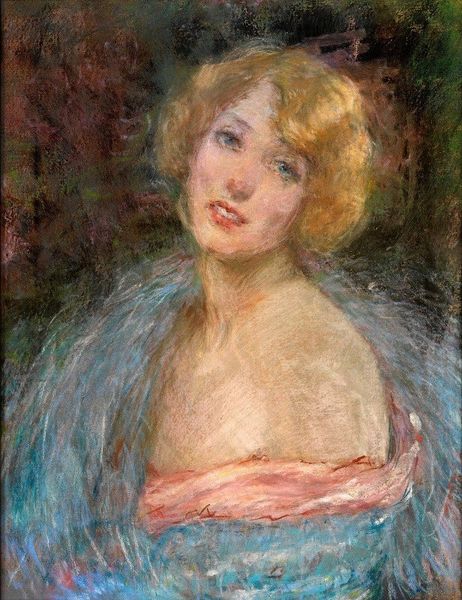
drawing, pastel
#
portrait
#
drawing
#
art-nouveau
#
oil painting
#
pastel chalk drawing
#
mythology
#
symbolism
#
pastel
Copyright: Public Domain: Artvee
Curator: Alice Pike Barney created this work, titled "Ceres," in 1901, rendered in pastel. The subject is draped with what appear to be vines and produce from her garden. Editor: My first thought? Melancholy. There's a subtle sorrow clinging to her expression, like a faint mist. The hazy pastels give her a dreamy, ethereal quality. Is she fading or about to bloom? It’s on the edge of something, isn't it? Curator: Considering that the classical Ceres presides over agriculture, fertility, and motherhood, and given that Barney moved in circles that embraced artistic expression rooted in Symbolism, how does this interpretation influence your experience? It makes me consider gender, labor, and class during that period. Editor: Yes, that all resonates! The way her garments are only roughly defined, as though they were tilled earth…there’s an interesting tension between her symbolic importance as the Roman Goddess of the harvest and how raw, literally earthy, the rendering feels. The apples around her face and head are slightly overripe too. She's bountiful but, at the same time, ephemeral. Curator: Right. There’s also the fact of her elite social standing to consider. Barney possessed considerable financial capital through inheritance and, crucially, patronage networks. One can't separate this "melancholy Ceres" from the modes of artistic production during this period. Editor: Well, it definitely complicates the reading. Still, there's something profoundly tender about the piece that transcends mere historical analysis for me. You sense Barney connecting with the subject in a really personal way, beyond the Symbolist framework, even though she uses an established mythological archetype. It is vulnerable in a way that most artists from that class aren't ready to be. It speaks to the dualities we all contain and is a really great accomplishment. Curator: It does open itself to several viewpoints. We might conclude that her status gave her the freedom to reflect on subjects often reserved for those lower down on the socioeconomic rungs, whilst exploring her own, subjective and emotional responses. Editor: Beautifully said. All in all, "Ceres" makes us consider nature's rhythms and the cyclical passage of time.
Comments
No comments
Be the first to comment and join the conversation on the ultimate creative platform.
